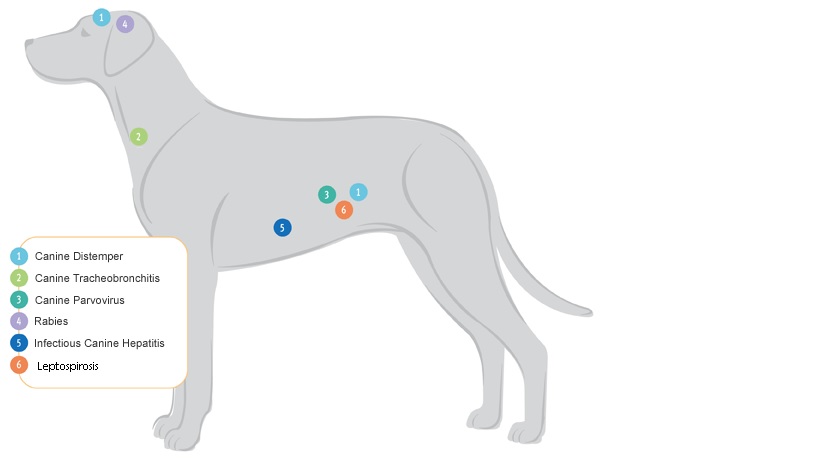Canine Wellness
Commit to a lifetime of health.
Your pup's annual appointment at SAVC starts with one of our technicians or assistants taking a history of your pet's activities over the past year. Our annual package includes a complete and thorough physical exam, vaccines, a heartworm test, and a fecal exam for intestinal parasites. Fecal exams are important as some parasites can be transferred from pets to people! It is important to have your dog tested for heartworms every year and use preventative year round.
Our goal is to help you make the best decisions for your furry family member. So, if you have any questions or concerns we would love to hear them. Nothing makes us happier than a healthy pup and a satisfied owner!
Don't forget heartworm preventative!
We have two forms of monthly heartworm preventative available for your furry family member. Our favorite product is SimparicaTrio. It is applied to the skin and is absorbed quickly like lotion to prevent heartworms, fleas, and intestinal parasites. It is great as you only need one product for all your pet's needs!
We also carry Sentinel Spectrum, a chewable tablet to prevent heartworms and intestinal parasites. Every pet should be on preventative year-round to protect them from parasites!
Why does my pet need vaccines?
Protect your best friend
One of the most important things you can do to give your dog a long and healthy life is to ensure that he or she is vaccinated against common canine diseases. Your dog's mother gave her puppy immunity from disease for the first few weeks of life by providing disease-fighting antibodies in her milk. After that period it's up to you, with the advice of your veterinarian to provide that protection.
How do vaccines work?
Vaccines contain small quantities of altered or "killed" viruses, bacteria, or other disease-causing organisms. When administered, they stimulate your dog's immune system to produce disease-fighting cells and proteins (antibodies) to protect against disease.
When should my dog be vaccinated?
The immunity a puppy gets from its mother starts to diminish between 6-12 weeks of age. We start vaccines around 8 weeks of age to help your pup start to develop its own immunity. These vaccines will be repeated once monthly until your puppy is 4 months old. After that, your dog needs to repeat vaccination at regular intervals for the rest of its life to maintain protection. If there is too long an interval between the first vaccination and the booster your dog may need to have additional boosters to adequately protect them.
Which vaccinations should my dog receive?
Most veterinarians believe that your pet should be protected against diseases that are common, highly contagious, and cause serious illness. Such diseases could include Canine Distemper, Infectious Canine Hepatitis, Canine Parvovirus, Bordetella, Leptospirosis, and Rabies.
1. Canine Distemper
This disease is highly contagious and is spread by discharge from the nose and eyes of infected dogs. It is fatal. Infected pets develop a fever, lethargy, coughing, diarrhea, vomiting, seizures, and paralysis.
2. Tracheobronchitis (Kennel Cough)
This respiratory tract infection is easily transmitted from dog to dog by respiratory secretions. Dogs develop a hacking cough and sometimes more serious pneumonia.
3. Parvovirus
This is a very contagious, debilitating virus transmitted by feces or vomit. It can live in the environment for months. Dogs develop fever, lethargy, vomiting, diarrhea, and nausea. It can be life-threatening.
4. Rabies
This incurable virus affects the brain of almost all mammals. It is spread by the saliva of infected animals through bites or any break in the skin. Vaccination can give your pet resistance to this virus.
5. Infectious Canine Hepatitis
This virus is transmitted by secretions like saliva, urine, or feces and causes signs similar to distemper. It also causes liver failure, eye damage, and breathing problems and can be fatal.
6. Leptospirosis
This is a bacteria transmitted to dogs by infected wildlife through their urine. Dogs get this bacteria by drinking water infected with contaminated urine or from breaks in the skin. It causes liver and kidney failure and can be fatal. It can also be transmitted to humans who handle infected urine.
To schedule your dog’s wellness exam, call us at (765) 642-8117 or request a dog exam appointment online.


